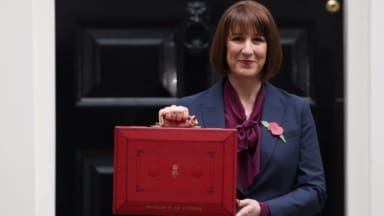
In their Autumn Budget statement, the Chancellor of the exchequer, Rachel Reeves has said that she will raise taxes by £40bn, including an increase in National Insurance contributions for employers from April. The government will also reduce the per‑employee threshold at which employers start to pay National Insurance from £9,100 to £5,000. For an industry already struggling with higher payroll costs, this move by the Chancellor represents a significant challenge for businesses. By dropping the secondary threshold so dramatically, she has raised the (National Insurance) costs for employing staff which will likely prompt re-evaluation of salary structures and pay levels. Reeves has already increased UK’s minimum hourly wage for over 21 year olds will rise by 6.7% from April and for 18-20 year olds by 16% – which though it will certainly bring financial relief the younger earners on the lowest incomes, it also impacts (small) businesses whom may already be struggling to absorb the additional labour costs.
Relief on business rates for the retail, hospitality and leisure industry will continue in 2025/26, but at 40% and not the current 75%, up to a cap of £110,000 per business.
Amongst the other tax announcements, she also announced an increase in Capital Gains Tax (CGT) and freeze on fuel duty next year. The government will increase the lower rate of CGT from 10% to 18%, and the higher rate from 20% to 24% – whilst residential property CGT thresholds are to remain unchanged. There are concerns that this may make the UK less tax-friendly for long-term investors, discouraging much needed investment, with capital potentially being redirected to more favourable jurisdictions. Fuel duty will be maintained and there will be no higher taxes at the petrol pumps next year.
Reeves has changed the debt rules, to enable government borrowing to invest in capital projects such as infrastructure spending. We await markets reactions in terms of concerns as to the costs of borrowing.
In terms of inheritance tax, Reeves said she would extend the freeze on thresholds for a further two years until 2030, but has made the decision to bring inherited pension pots left on death, within the Inheritance Tax regime. A change which may impact on retirement planning as the addition of pensions to estates could substantially increase the number of estates which become subject to inheritance tax.
For farmers, any agricultural land and business worth more than £1million will now be subject to inheritance tax at the 20% rate. Given the level of capital employed in farms across the country, that £1m threshold is likely to be easily reached.
Good news on the crime front for retailers, as Reeves announced funding to “crack down on organised crime” and “stop shoplifting in its tracks”. Reeves said that after closely listening to organisations such as the British Retail Consortium and Usdaw, she will be providing additional funding to combat organised gangs targeting retailers.
The Office for Budget Responsibility (OBR) has warned that the £40bn tax rises will weaken long-term growth in Britain’s economy. In his response, the Former Prime Minister and Conservative leader Rishi Sunak called the Budget “an enormous borrowing spree” stipulating “broken promise after broken promise”.
The Horticultural Trades Association (HTA) Director of Public Affairs, Jennifer Pheasey, said: “The Budget paints a mixed picture for the UK’s horticulture businesses, comprising 98% SMEs. The confirmation that employer national insurance contributions will rise, a 6.7% increase in the national living wage, adjustments to capital gains tax and ongoing changes in inheritance tax and property reliefs place additional financial pressure and uncertainty on many HTA members. These announcements come against a backdrop of other challenges, such as cross-border trade. We will examine the details of these measures and work with members to establish the full impact.”
“Whilst much focus has been on tax rises, the government’s commitment to housebuilding and supporting investment is welcomed. We call on new homes to come with green spaces that are designed, delivered and maintained by UK horticulture. This must be an opportunity to boost UK businesses. We also welcome some continued relief on retail business rates, but we repeat our ongoing request to reform and fully review rates, including for our members in Scotland.
“We are also encouraged that our ask for action on retail crime, which accounted for a £16 million loss in turnover for HTA member garden centres in 2022, has been listened to with the announcement of effective immunity for low-value shoplifting scrapped and more funding to crack down on organised gangs targeting retailers.
“Maintaining consumer confidence amid the cost-of-living pressures is essential, and the government’s messaging encourages spending. However, it’s important to recognise the impact that economic uncertainty has had on household budgets and for our members, consumer confidence is crucial.
“Our sector delivers for the economy, environment, and health and wellbeing, which are significant challenges the government is currently grappling with and will only become more critical – Environmental Horticulture is uniquely placed to help with all three and therefore, investment in our sector will see returns across the UK.
“As always, the devil is in the details, and the HTA will follow up with analysis and inputs to ensure our sector’s needs are understood, enabling the industry to flourish and contribute positively to the UK economy and growth.”

